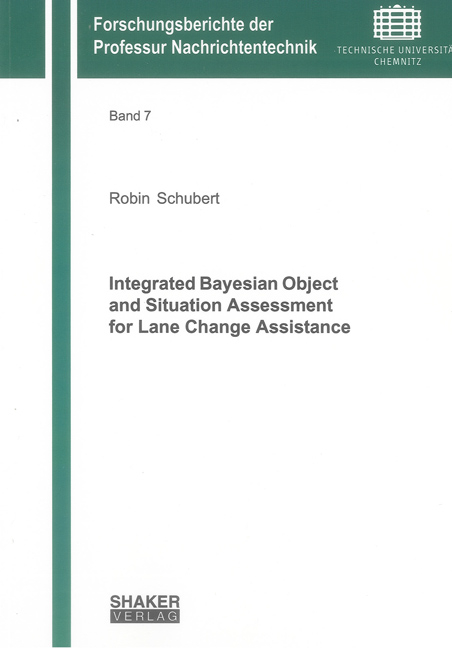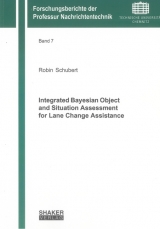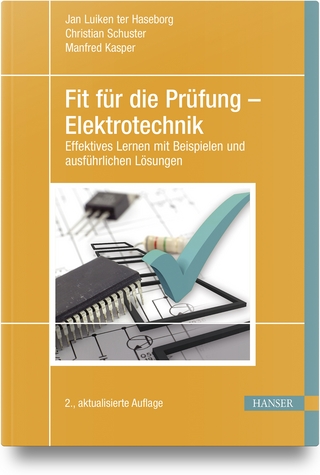Integrated Bayesian Object and Situation Assessment for Lane Change Assistance
Seiten
2011
|
1., Aufl.
Shaker (Verlag)
978-3-8440-0322-2 (ISBN)
Shaker (Verlag)
978-3-8440-0322-2 (ISBN)
- Keine Verlagsinformationen verfügbar
- Artikel merken
In-vehicle advanced driver assistance systems are based on the perception and interpretation of the vehicle's environment. These tasks are often based on probabilistic object and situation assessment algorithms such as Bayes filters or Bayesian networks. However, though these techniques are subject to intensive research, the interface between them has not yet been sufficiently addressed.
Thus, the main research objective of this work is to provide a generic, bidirectional, probabilistic interface between object and situation assessment in order to allow a unified view on these tasks. For that purpose, it is firstly shown that by a new technique called adaptive likelihood nodes, uncertainties from the probabilistic perception of the vehicle's surrounding can be directly entered into a Bayesian network in order to influence the situation assessment. In addition, it is investigated how uncertain knowledge about the current situation can be exploited in order to support the tracking performance. For that, an extension of the interacting multiple model filter is proposed which is called the meta model filter. This technique models possible maneuvers of vehicles using a Bayesian network in order to adaptively adjust the transition probabilities of the interacting multiple model filter according to the current situation. With this approach, a situation-dependent multiple model filtering can be achieved.
The benefits of these theoretical contributions are demonstrated on the example of an advanced driver assistance system which supports lane change maneuvers on highways. The aim of this lane change assistant is to sense the surrounding of the host vehicle in order to assess the current traffic situation and automatically determine optimal lane change maneuver decisions. This work describes all data fusion components of this system including probabilistic filtering, situation assessment, and decision taking. It is shown how by using both of the newly proposed concepts – adaptive likelihood nodes and the meta model filter – a unified Bayesian data processing chain from the sensors to the final maneuver decision can be achieved. Finally, the performance of the lane change assistant and the benefits of the proposed techniques are analyzed using both simulated and empirical data.
Thus, the main research objective of this work is to provide a generic, bidirectional, probabilistic interface between object and situation assessment in order to allow a unified view on these tasks. For that purpose, it is firstly shown that by a new technique called adaptive likelihood nodes, uncertainties from the probabilistic perception of the vehicle's surrounding can be directly entered into a Bayesian network in order to influence the situation assessment. In addition, it is investigated how uncertain knowledge about the current situation can be exploited in order to support the tracking performance. For that, an extension of the interacting multiple model filter is proposed which is called the meta model filter. This technique models possible maneuvers of vehicles using a Bayesian network in order to adaptively adjust the transition probabilities of the interacting multiple model filter according to the current situation. With this approach, a situation-dependent multiple model filtering can be achieved.
The benefits of these theoretical contributions are demonstrated on the example of an advanced driver assistance system which supports lane change maneuvers on highways. The aim of this lane change assistant is to sense the surrounding of the host vehicle in order to assess the current traffic situation and automatically determine optimal lane change maneuver decisions. This work describes all data fusion components of this system including probabilistic filtering, situation assessment, and decision taking. It is shown how by using both of the newly proposed concepts – adaptive likelihood nodes and the meta model filter – a unified Bayesian data processing chain from the sensors to the final maneuver decision can be achieved. Finally, the performance of the lane change assistant and the benefits of the proposed techniques are analyzed using both simulated and empirical data.
| Reihe/Serie | Forschungsberichte der Professur Nachrichtentechnik ; 7 |
|---|---|
| Sprache | englisch |
| Maße | 148 x 210 mm |
| Gewicht | 333 g |
| Einbandart | Paperback |
| Themenwelt | Technik ► Elektrotechnik / Energietechnik |
| Schlagworte | Advanced driver assistance systems • data fusion • Lane Change Assistant • Multi Object Tracking • Situation Assessment |
| ISBN-10 | 3-8440-0322-3 / 3844003223 |
| ISBN-13 | 978-3-8440-0322-2 / 9783844003222 |
| Zustand | Neuware |
| Haben Sie eine Frage zum Produkt? |
Mehr entdecken
aus dem Bereich
aus dem Bereich




